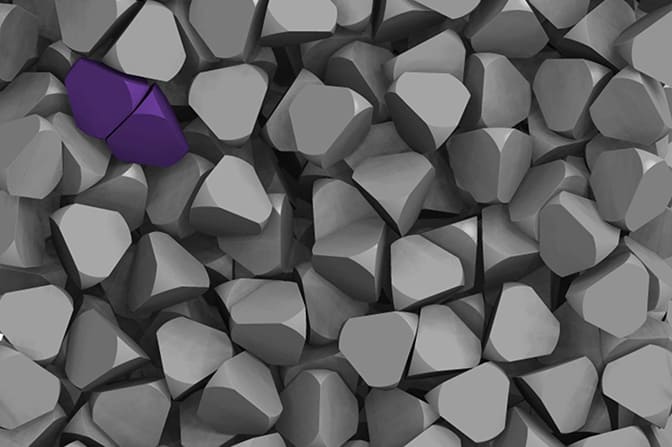
Sharon Glotzer receives Vannevar Bush Faculty Fellowship
Sharon C. Glotzer, Anthony C. Lembke Department Chair of Chemical Engineering, has received the Vannevar Bush Faculty Fellowship from the U.S. Department of Defense.

Sharon C. Glotzer, Anthony C. Lembke Department Chair of Chemical Engineering, has received the Vannevar Bush Faculty Fellowship from the U.S. Department of Defense.
Sharon C. Glotzer, Stuart W. Churchill Collegiate Professor of Chemical Engineering, has received the Vannevar Bush Faculty Fellowship from the U.S. Department of Defense, becoming one of nine distinguished faculty scientists and engineers to receive the award this year.
The fellowship, created in 2008 as the National Security Science and Engineering Faculty Fellowship, was renamed in honor of Dr. Vannevar Bush, a decorated engineer who led the Office of Scientific Research and Development during World War II and served as the first Presidential Science Advisor.
Over the five-year term, each fellow will receive up to $3 million to pursue their research. This prestigious award is, as described by program officer Dr. Jean-Luc Cambier, “oriented towards bold and ambitious ‘blue sky’ research that will lead to extraordinary outcomes that may revolutionize entire disciplines, create entirely new fields, or disrupt accepted theories and perspectives.” The fellowship is the largest single-investigator grant awarded by the DoD.
The $3M award will support Glotzer and her students and postdocs to develop a foundational theory of entropic bonding based on statistical thermodynamics
Her group has shown that entropic bonding occurs when microscopic objects, like nanoparticles, become crowded and are forced to align, producing complex crystal structures.
Glotzer aspires to expand the Periodic Table of Atomic Elements into a multi-dimensional Periodic Table of Shapes that describes design rules for crystals and other complex structures. The theory is also expected to yield insight into the crowded environment of biological cells.
“Our big breakthrough is that we can now describe entropic bonds with a theory that matches the theory for electronic interactions that give rise to chemical bonds,” Glotzer said. “Mathematically speaking, it puts chemical bonds and entropic bonds on the same footing. This is both fundamentally important for our understanding of matter and practically important for making new materials.”
Pursuing the parallels between entropic and electronic bonding of nanoparticles and atoms could potentially transform nanoparticle design and synthesis and provide a new and powerful structure prediction method for colloidal crystals. These discoveries could be applied to self-assembled materials for novel photonic, plasmonic and transport properties, optical microsensing, broadband circular polarizers, quantum information platforms and more.
A two-time recipient of this fellowship, Glotzer – along with the other eight 2022 Fellows — will join the current fellows conducting research in materials science, cognitive neuroscience, quantum information sciences, and applied mathematics, among other disciplines, while engaging directly with Department of Defense laboratories and leadership and the larger national security community.
Sharon Glotzer is also the John Werner Cahn Distinguished University Professor of Engineering and the Anthony C. Lembke Department Chair of Chemical Engineering, and is a member of the National Academy of Engineering, the National Academy of Sciences, and the American Academy of Arts & Sciences. She has courtesy appointments in Materials Science and Engineering, Physics, Applied Physics, and Macromolecular Science & Engineering, and has been a part of University of Michigan Engineering since 2001.